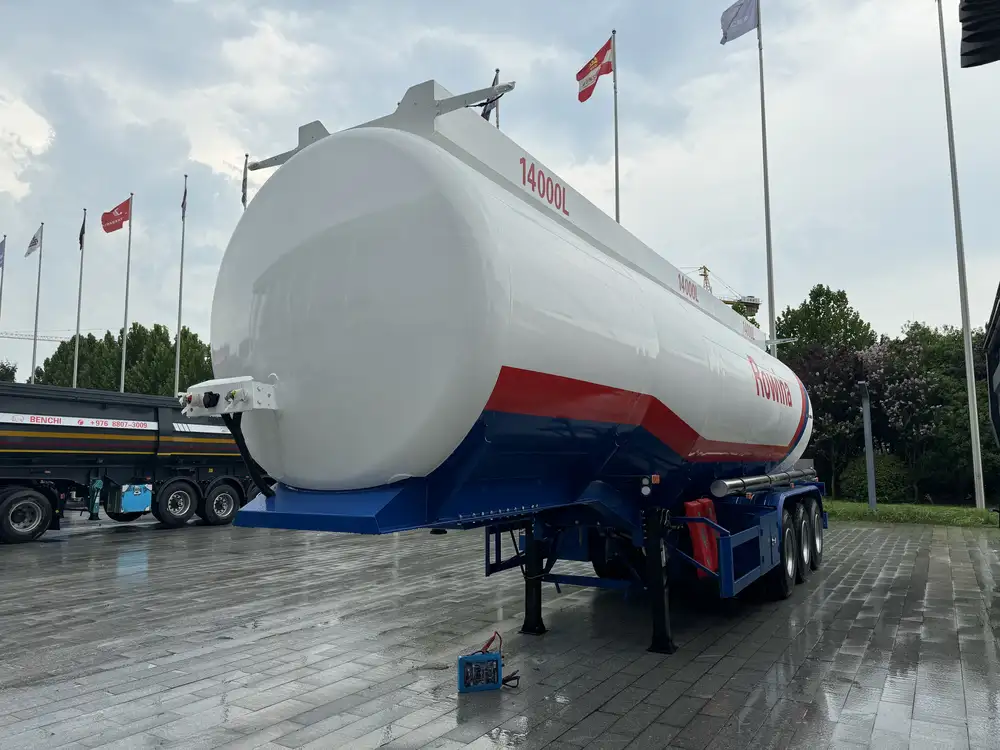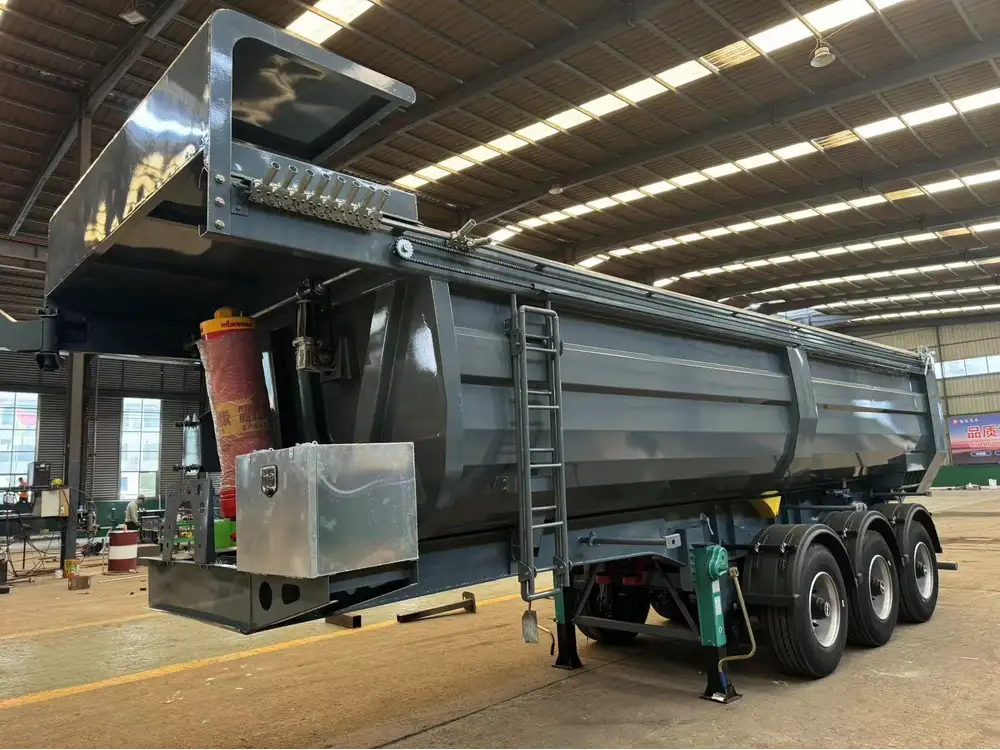Propane is an indispensable fuel source for many trailer owners, enabling everything from cooking to heating. However, it’s crucial to know where to exchange propane tanks safely and conveniently. In this comprehensive guide, we will dive into the best practices for exchanging trailer propane tanks, explore various exchange locations, and provide tips to ensure you’re making the best choice for your needs.
Understanding Propane Tank Exchange
What is Propane Tank Exchange?
Propane tank exchange typically involves swapping an empty tank for a full one at designated locations. It’s a popular service for individuals and businesses that rely on propane for their operations. Understanding the process and knowing where to go can simplify and expedite your efforts.

Benefits of Exchanging Propane Tanks
- Convenience: No need to refill your tank — just drop off the empty and pick up the full.
- Safety: Professional exchange services maintain safety regulations, ensuring that tanks are filled properly.
- Availability: Many locations offer propane tank exchange services, making it easy to find one nearby.
Top Locations for Propane Tank Exchange
1. Gas Stations and Convenience Stores
Gas stations and convenience stores often provide propane tank exchange services. These locations are convenient since they are typically open long hours and may be in close proximity to your home or work.
Pros:
- Open 24/7 at some locations
- Easy to access during your regular travels
Cons:
- Limited selection of tank sizes
- Possible price markups compared to other exchange options

2. Grocery Stores and Supermarkets
Many major grocery chains have embraced propane tank exchanges, catering to customers who need fuel while shopping for their groceries.
Pros:
- One-stop-shop convenience
- Possible loyalty rewards or discounts for members
Cons:
- Exchange services may not be available at all locations
- Limited hours of operation
3. Home Improvement Stores
Home Depot and Lowe’s are common locations where trailer owners can exchange propane tanks. These stores often have designated areas for propane services.
Pros:
- Generally reliable and safe exchange practices
- Larger tanks and more diverse fuel-related products
Cons:
- May require waiting during busy hours
- Exchange area could be located away from the main entrance
4. Specialty Propane Suppliers
Local propane suppliers or distributors can be excellent resources for trailer propane tank exchange, especially if you’re looking for bulk service or specific tank sizes.
Pros:
- Expertise in handling propane
- Potential for better pricing for larger exchanges
Cons:
- Might require prior arrangement or membership
- Often limited locations compared to more common venues

5. Rental Facilities
If you’re renting trailers for events or transportation, rental facilities typically provide propane tank exchange services as part of their offerings.
Pros:
- Convenient if you’re already renting equipment
- May include additional services, like inspections
Cons:
- Limited exchange hours
- May be subject to rental agreements
Factors to Consider When Exchanging Propane Tanks
1. Safety Regulations and Compliance
When exchanging propane tanks, it’s vital to ensure that the facility complies with all safety regulations. Look for stores or suppliers that are certified and adhere to local, state, and federal standards.

2. Cost Comparison
Prices for propane tank exchanges can vary widely. Conduct a nominal price comparison among local suppliers, considering both the exchange fee and the amount of propane included.
Table of Cost Comparison: Location Type Average Cost (20 lb tank) Availability Gas Station $20 – $30 24/7 Grocery Store $15 – $25 Limited Home Improvement Store $20 – $28 Regular Hours Specialty Supplier $18 – $26 Appointment Only Rental Facility $25 – $35 Irregular
3. Tank Condition and Inspection
Inspect the propane tank you are exchanging. Look for any visible damage or corrosion, as propane tanks must meet mandatory safety standards. Ensure the exchange facility visually checks these conditions as well.
4. Tank Size and Compatibility
Propane tanks come in various sizes (5 lb, 20 lb, 30 lb, 40 lb). Ensure that the exchange facility carries the appropriate sizes for your trailer’s needs.

Tips for a Smooth Propane Tank Exchange
1. Review Tank Specifications
Familiarize yourself with your trailer’s specific propane requirements before heading to an exchange location. This includes checking the tank size and connection type.
2. Check for Discounts and Promotions
Many retailers offer discounts for bulk purchases or loyalty program members. Always inquire about current promotions that may reduce your overall costs.

3. Verify Location Hours
Before making a trip, confirm the operating hours to avoid any last-minute inconvenience. You can often find this information on the retailer’s website.
4. Bring Identification
While not always required, some locations may ask for personal identification or proof of purchase. Carrying a form of ID can expedite your transactions.
5. Monitor Your Tank’s Condition
Regularly check your own tank for signs of wear and tear. Knowing when it’s time for an exchange can save you hassles during your travels.

Frequently Asked Questions about Propane Tank Exchange
1. How Often Should I Exchange My Propane Tank?
This depends on your usage. Light users may only need to exchange tanks every few months, while heavy users might do so weekly or monthly.
2. Can I Exchange My Propane Tank at Any Location?
Not all locations provide propane tank exchange. Be sure to verify before visiting or check online.

3. What Safety Precautions Should I Take?
Always transport your propane tank upright, never in a closed vehicle, and ensure that the valve is tightly closed to prevent leaks.
4. What Should I Do if I Receive a Damaged Tank?
Immediately notify the personnel at the exchange location and do not accept an unsafe or damaged tank.
Conclusion
Navigating the realm of propane tank exchanges doesn’t have to be a daunting task. By understanding where to exchange trailer propane tanks, the benefits of doing so, and vital considerations regarding safety, costs, and convenience, you are now equipped to make informed decisions. Prioritize your needs and safety as you embark on your propane journey, whether for a weekend camping trip or ongoing operational requirements. Stay empowered and informed, knowing that you can efficiently fuel your adventures and operations with propane through seamless exchanges.



